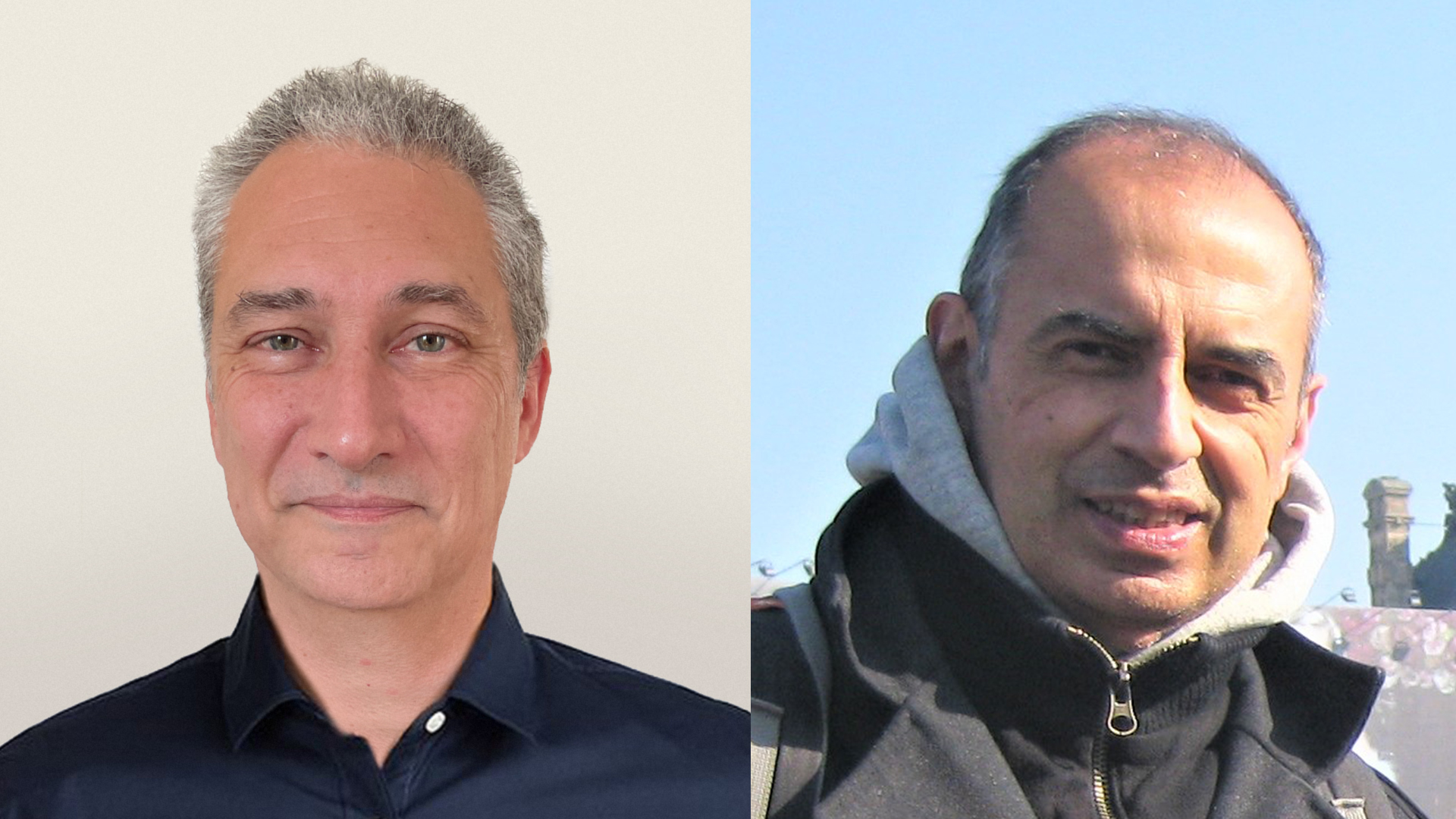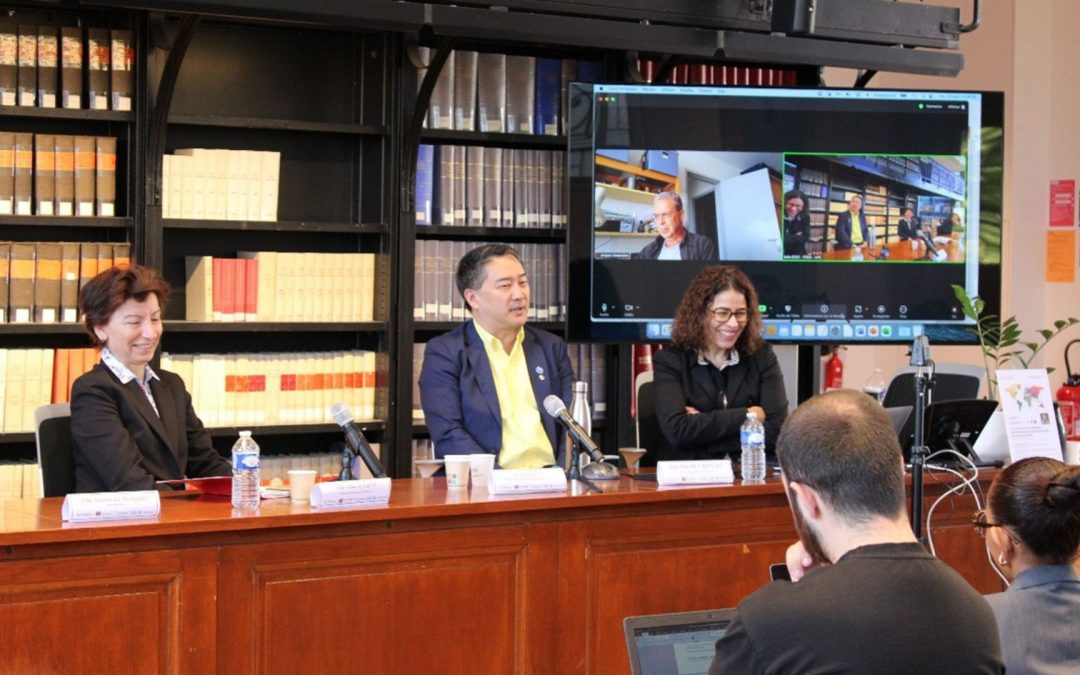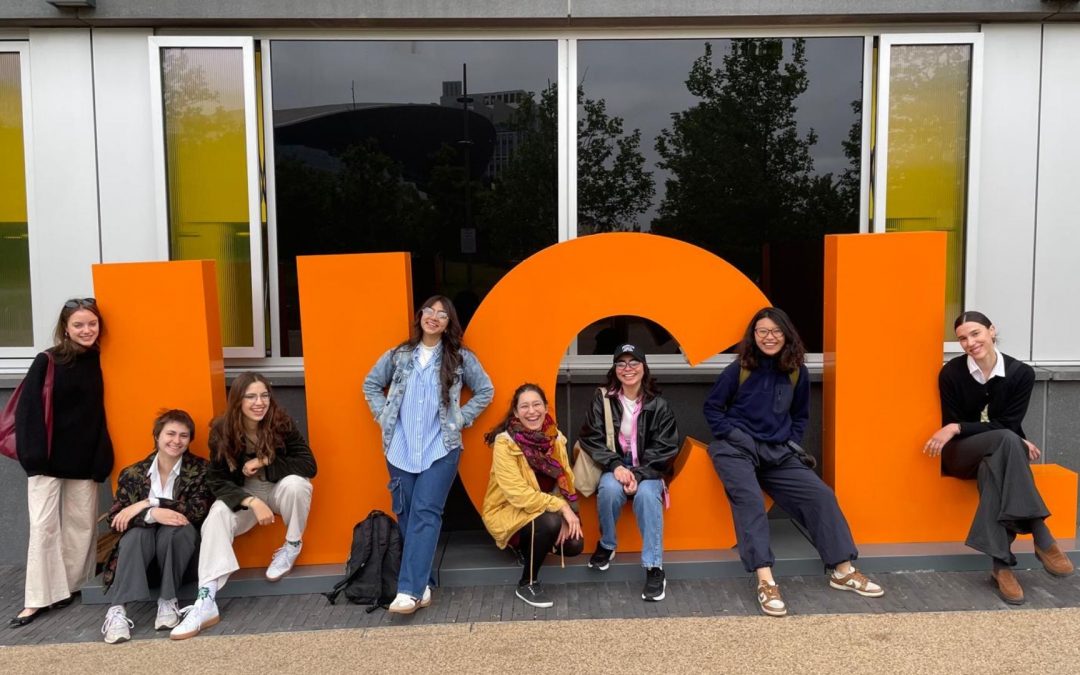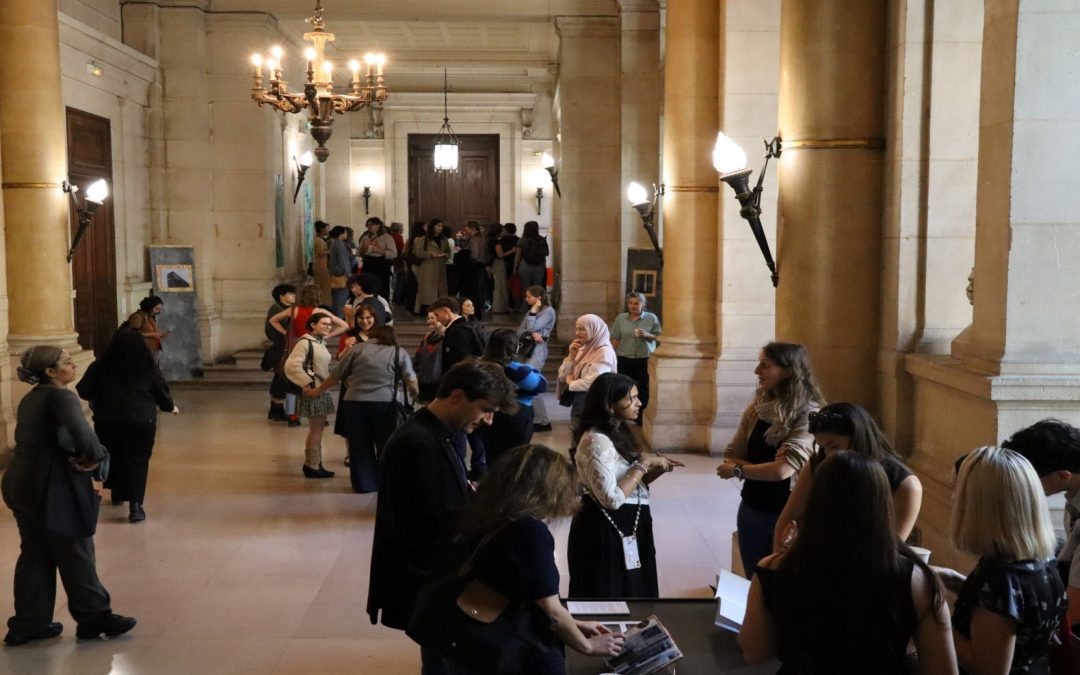Over the last month, Olivier Taboureau, professor of bioinformatics and biostatistics at Université Paris Cité has been hosting internationally recognized tenured scientist and expert in structural bioinformatics, Juan Fernandez-Recio of the Spanish National Research Council based in Logrono, Spain. Together, they are collaborating on the modelling of the interaction between Sars-Cov-2 spike protein and TMPRSS2 as an entry point to human host cells. Their aim is to use the work for future developments of new therapeutic molecules against Covid-19. Discover their research project.

© Olivier Taboureau and Juan Fernandez-Recio
Professors Taboureau and Fernandez-Recio are our second pair of researchers in a series of interviews being conducted within the International Guest Researchers Programme launched in January 2022.
They took the time to tell us about their collaboration, the involvement of students and goals to extend their project beyond 2022.
It was the first time since the global pandemic that the two researchers were actually able to conduct their work together in person. Olivier Taboureau and Juan Fernandez-Recio know each other very well. Oliver took the opportunity to invite Juan back as it’s a great way to combine their methodologies on various research studies as well as benefits for their students. It also enables Juan to participate in teaching his tools in the ISDD master programme. Olivier Taboureau’s group has developed systems pharmacology and chemogenomics resources, such as ChemProt, which are complementary to the computer docking methods developed by Juan Fernandez-Recio and his team.
A project in the search of treatments against SARS-Cov-2
The main topic of research Olivier Taboureau and Juan Fernandez-Recio are focusing on in their project is the modeling of the interaction of SARS-Cov-2 spike protein and TMPRSS2 from host cells. Their main focus is around the methodological development in general to understand protein interactions and structures.They are studying the impact of SNP-type genetic mutations on the development of metabolic diseases and recently on COVID-19 receptors such as ACE2 and TMPRSS2. TMPRSS2 is a transmembrane serine protease that is involved in the viral entry and spread of coronaviruses including severe acute respiratory syndrome coronavirus 2 (SARS-CoV-2). It is this virus that causes Covid-19. Blocking the complex formed by the virus spike and the human cell protease could potentially be an effective clinical therapy for Covid-19. They aim to identify small molecules that could inhibit this interaction.
How are the ISDD and Bioinformatic master students contributing to the project ?
“We are conducting our research project with the help of a master trainee from the ISDD (In Silico Drug Design) and Bioinformatics Master programmes. Hocine El Khaoudi is our student already modelling this system. The internship is from two to six months depending on their level. Students receive recognition and ECTS credits during their internship as part of the collaboration. They also are quoted in case a publication is produced. It is a good opportunity to be contact with the students, expertise and learn from them.” according to Olivier Taboureau.
Do you have any advice for your students ?
“International way of education is important for students to study abroad. We offer such opportunities. We can improve the network and the research. That is what we like in this kind of collaboration with Juan. Students realize they are part of the research and contribute to discovery. ” says Olivier Taboureau.
“I have been involved in giving lectures for many years, I know students that, years later, have kept their interest in my field, protein protein docking, and I am very happy we can contribute to that. I am very happy that some of them are engaged in these methodologies in their careers. It is a good opportunity for students to be exposed to different ways of doing Science and they are insightful for them. English is the language of science, it is important for students be exposed to english interactions, reading and in engaging in discussions. Students learn from us and everyday we learn from them.” adds Juan Fernandez-Recio.
What are the next steps ?
“We will continue our collaboration during the next months, with the suppor of the student, and for the near future we hope to apply for new grants, and extend the project to new groups. We are planning to have Juan to come back next year. He is also giving lectures, it is a good way to make a combination together. Students learn from his domaine, expertise, play with the tools he is developing, there are two contributions, so we are doubly happy. We hope to be able to publish our work in an internationally peer-reviewed scientific journal and strengthen the collaboration between our two research laboratories.” states Olivier Taboureau.
About
Juan Fernandez-Recio is a tenured scientist at the Spanish National Research Council (Consejo Superior de Investigaciones Científicas – CSIC) based in the Instituto de Ciencias de la Vid y del Vino (ICVV) in Logrono, Spain, where he joined in 2017. He is the leader of a research group in structural bioinformatics and has developed innovative computational tools to predict protein-protein interactions such as ICM-DISCO or pyDock with desolvation descriptors integrated in other renowned docking programs such as HADDOCK. His research focuses on developing computational methods for structural modeling of proteins and their interactions to help understand protein function at molecular level, with applications to biological problems, human health, drug discovery, nutrigenomimcs, and biotechnological processes. During his career, he has received numerous prestigious grants including a Marie Curie post-doctoral fellowship and an ERG grant. Dr. Fernandez-Recio has published more than 130 papers in recognized international scientific journals including Nature, PNAS, JACS, J. Biol.
Olivier Taboureau is a Professor at Université Paris Cité, Faculty of Science, SDV department, Sciences du Vivant conducting research at the BFA laboratory, Unité de Biologie Fonctionnelle et Adaptative, CNRS UMR 8251. The BFA unit conducts research in Integrative Biology. Research topics in BFA try to understand the biological mechanisms underlying human adaptation to environmental and/or internal perturbations (endocrine, metabolic or genetic inputs) in physiological or pathophysiological contexts. Dr. Taboureau’s most recent joint publication “Pulmonary administration of remdesivir in the treatment of COVID-19″ suggests that intravenous administration of remdesivir is unlikely to produce sufficiently high concentrations of its active antiviral agent, the nucleoside triphosphate (Nuc-TP), in human lungs to effectively eliminate SARS-CoV-2.
For more information
International Guest Researchers Programme
Read more

Results of the 2025 Call for Projects with the University of Toronto
The 2025 call for projects between Université Paris Cité and the University of Toronto met with great enthusiasm within the scientific communities of both institutions. Eighteen proposals were submitted by pairs of researchers; five projects were selected at the end...
read more
Discussing Sustainability Standardization with Charles Cho, Professor of Sustainability Accounting at York University (Canada)
As part of the international program "Enseignant-Chercheur Invité", Charles H. Cho, PhD, CPA, Professor of Sustainability Accounting and holder of the Erivan K. Haub Chair in Business & Sustainability at the Schulich School of Business, York University, was...
read more
EURIP Master’s Students at University College London Hackathon

From Paris to Singapore: a visual retrospective of the exhibition
On the 16th of May, Université Paris Cité hosted the exhibition evening for the programme Singapore: a Nexus of Nature, Culture, and the Arts. Centred around creativity, intercultural exchange, and environmental reflection, the event showcased the work of around...
read more